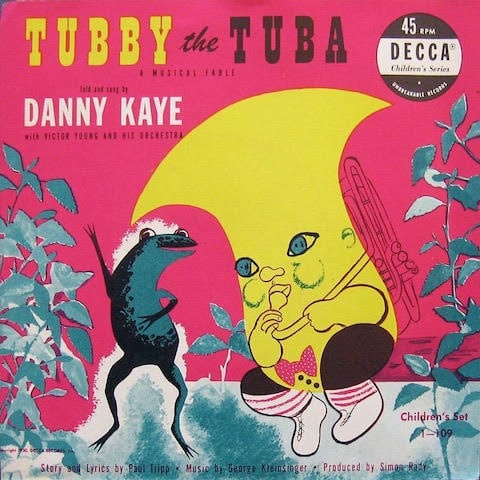Slippedisc comfort zone (8): Cheer up, tuba
mainLovely stuff from the Vienna Symph.
The composer Jan Koetsier (1911-2006) was Kapellmeister of the Bavaria Radio Symphony Orch in the 1950s.

Lovely stuff from the Vienna Symph.
The composer Jan Koetsier (1911-2006) was Kapellmeister of the Bavaria Radio Symphony Orch in the 1950s.
We hear that Stephen Rose, former head of…

There have been some irreparable losses. Germany mourned…

The steady departure of cherished professors at the…

The prolific international conductor Michael Tilson Thomas, diagnosed…

Session expired
Please log in again. The login page will open in a new tab. After logging in you can close it and return to this page.
With a quote from Debussy’s Arabesque at 01:00.
The work notably quotes the bayerischer defiliermarsch, which is considered the “secret” national anthem of Bavaria. It became popular during the Franco-Prussian War of 1870 and was highly promoted by King Ludwig. My wife played in the Munich Phil for 13 years. She remembers brass group parties where she was the only woman, and where she would sit with the men at a long beer-hall type table and play the march with all the men while they drank their beers. The cultural experiences of living in Europe.
That must have been with Maazel and Zube who produced a joint Blasmusik-CD.
https://www.mom-music.de/cd-ehrensache-produktseite/
The Munich Phil had a long history of remaining close to local Bavarian culture. I remember the first Christmas party for the orchestra Abbie attended. It was 1980. She had only been in the orchestra a few months. We were naively expecting suave and urbane orchestra musicians, but a lot of the men were in Lederhosen. I don’t know about the orchestra now, but back then it was still very close to its cultural roots.
Cheery indeed. Thank you, Norman, you’ve helped me start my day with a spring in my step!
Jan Koetsier was very kind man and specialized in writing brass music. There is an institute at the University of Music in Munich dedicated to the preservation of his work.
Koetsier had a somewhat mixed reputation after the war, or so it was whispered in Munich when I lived there during the 80s and early 90s. He was born in Amsterdam but grew up in Berlin and had a dual Dutch and German identity. In his book, “Musik im NS-Staat,” the much-persecuted musicologist Fred K. Prieberg reported (page 404) that during the occupation of the Netherlands by the Nazis, Koetsier worked as a relatively high profile collaborator. Due to his collaboration his music was highly praised by the Nazi press and his career significantly advanced.
Koetsier’s strong presence in Munich after the war, including his prominent position with the Rundfunk Orchester, seemed to be uncomfortably correlated to this history. Bavaria had become something of a national redoubt for Nazi collaborators after the war which contributed to the region’s bizarre political climate that continues to this day.
Or perhaps Koetsier’s support in Munich was just a coincidence.
Today this part of Koetsier’s history is seldom, if ever, mentioned. His promotional materials even say that during the 1930s he was obligated to go back to the Netherlands due to the anti-foreigner sentiments of the Nazis—an ironic twist to earlier concerns about him. It is interesting to see how even in one’s lifetime history can be so flexible.
Still, there’s no denying that Koetsier wrote a lot of useful brass music. The above work for tuba is a valuable contribution to the instrument’s repertoire.
Danny Kaye was, rather openly, the lover of Sir Laurence Olivier for at least a decade. I can’t think of an odder combination, but whatever works for you …
We had this record when I was a child! Listening to it
again is a delight. Lovely strings here. Thanks so much, Norbert.
Lucky you. When I read the Tubby the Tuba book to my children, I wished I were a child myself.
Who is the tuba player? He is a fine player.
Franz Winkler. Yet another great player.
Love the frog.